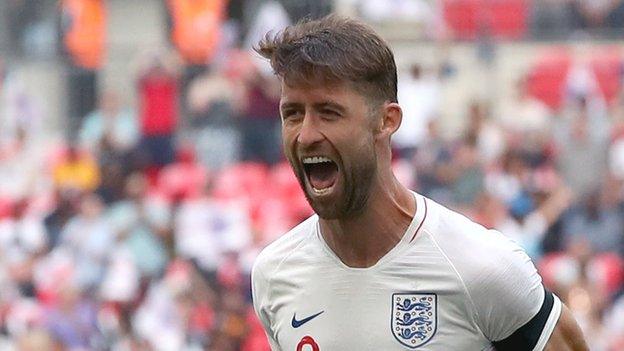World Cup 2018: Have England found their most effective system?
- Published
- comments
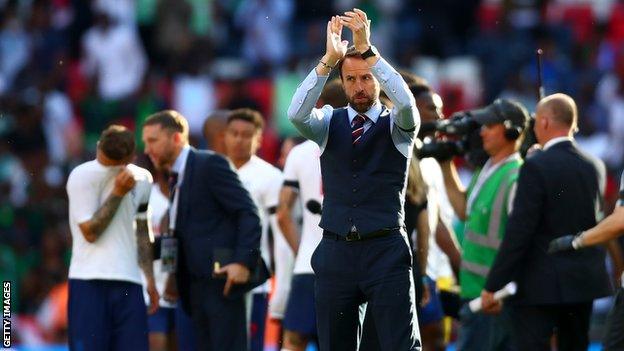
Gareth Southgate applauds the England supporters after their friendly with Nigeria
England manager Gareth Southgate's final World Cup plans are falling into place - his favoured shape and format coming into view after the latest friendly win against Nigeria at Wembley.
Southgate has long decided on a three-man defensive system with wing-backs pushing on as England's best formula for success when the action gets under way against Tunisia on 18 June.
He insisted the team that started the 2-1 victory over Nigeria may not necessarily be the one that lines up in Volgograd "but it won't be too far away".
And the body of evidence is growing that Southgate has hit on the system that best suits the qualities contained in all components of his England squad.
Kyle Walker's selection on the right side of the back three can be regarded as experimental but Southgate rightly points out that this is often where he ends up playing for Manchester City, adding the vital quality of raw pace that is lacking elsewhere in England's defensive ranks.
Walker's Manchester City colleague John Stones is another certain starter because of his ability to bring the ball out of defence while the decision on final member of that key trio appears to be between Chelsea's Gary Cahill - a goalscorer and an excellent contributor here - and Leicester City's Harry Maguire.
They are likely to play in front of Jordan Pickford after Southgate said he made a "statement" by starting the Everton keeper on Saturday.
Southgate's intention is to combine balanced defensive solidity with pace and threat down the flanks. He is utilising his resources sensibly, with surely only minor fine tuning left at this late stage.
Tottenham's Kieran Trippier delivered exactly what Southgate wants in a vibrant display full of attacking threat in this friendly - but questions still remain about the left side of Southgate's masterplan.
Manchester United's Ashley Young, as should be expected given he has spent virtually his entire career as an attacker, is comfortable going forward but his defensive shortcomings could be exposed by the elite opposition England will face should they progress as Southgate wishes in Russia.
Young has certainly not seen off the competition for his place from Tottenham's Danny Rose.
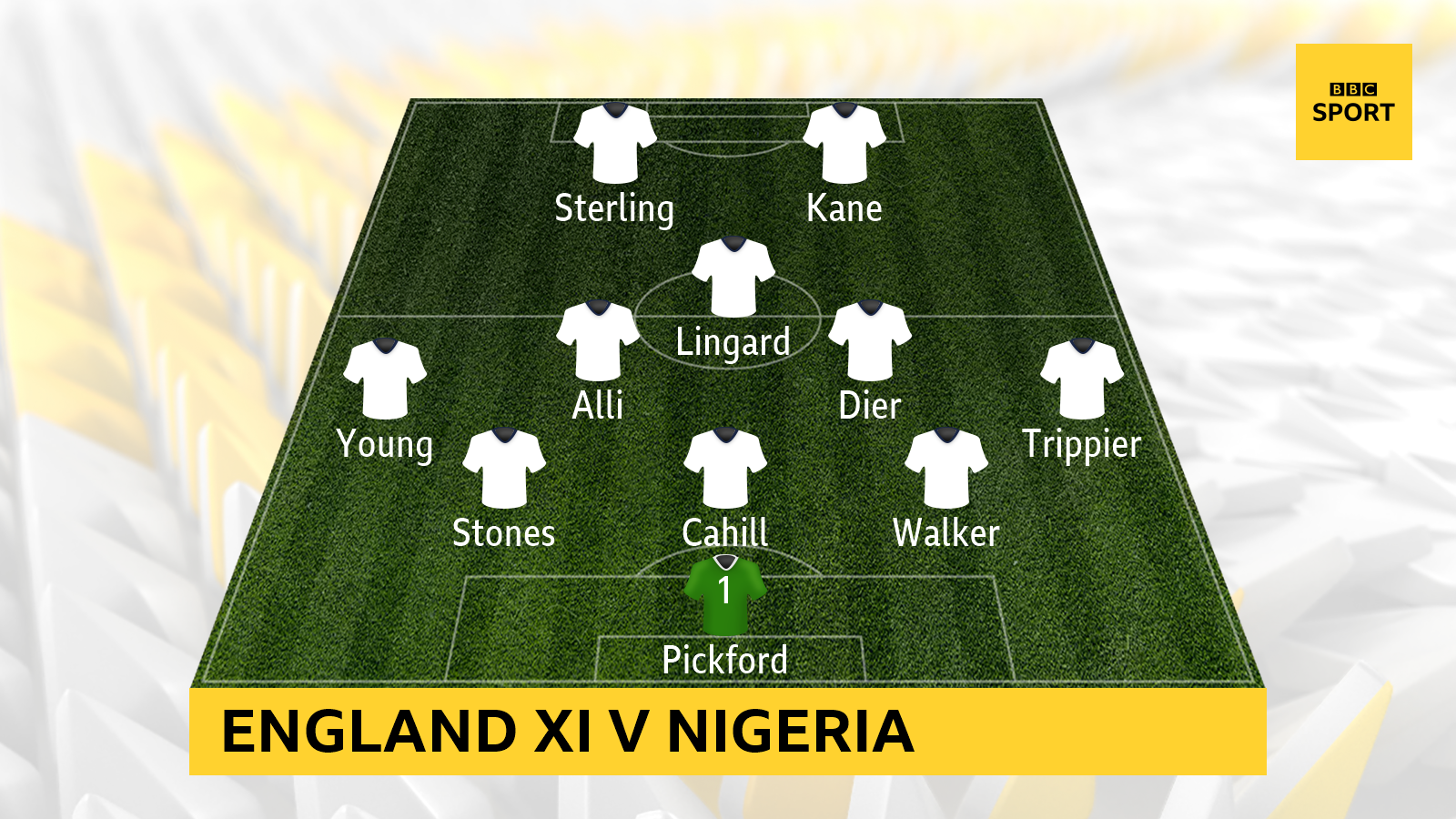
The composition of England's midfield has long been a source of debate, particularly performing the delicate balancing act between establishing a solid foundation while having the creativity required to open up defences at the World Cup.
Nigeria's timid first-half display places this victory in context but Southgate will have been given real food for thought by what he saw at Wembley.
Tottenham's Dele Alli has seen his place questioned in recent times, particularly after the March friendlies against the Netherlands and Italy saw the emergence of Manchester United's Jesse Lingard as someone with the potential to make a real impact as a game-changer in Russia.
Southgate has often relied on the defensive midfield duo of Tottenham's Eric Dier and Liverpool captain Jordan Henderson, a pairing which is strong on reliability but short on creation.
With Henderson absent here after his Champions League final exertions with Liverpool, Dier provided the base with Alli in close proximity and Lingard offering movement and flexibility as a link between them and the attacking pair of captain Harry Kane and Raheem Sterling.
It was a formation in its infancy but offered lots of promise, certainly when it is thrown forward to England's opening two World Cup games against Tunisia and Panama, when they will be overwhelming favourites.
Do England really need the security blanket of both Dier and Henderson against that opposition? If not, this looked the sort of set-up that could flourish.
Southgate may have a decision to make further down the line against the likes of Belgium but (and it has to be stressed this was against a Nigeria side that was very poor for 45 minutes) Alli contributed moments of real quality and suggested there could be room for both him and Lingard.
Alli has shown he has the class to flourish and be a World Cup asset for Southgate and England. This performance, in this system, provided a timely reminder.
Kane's England position has never been in doubt, his status cemented by his confirmation as World Cup captain, and another goal here simply emphasised that he goes to Russia as Southgate's main threat and great goalscoring hope.
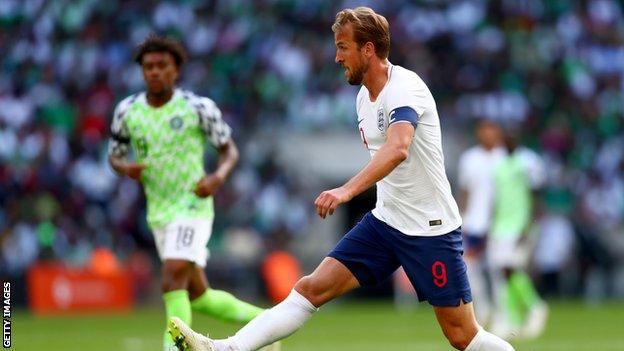
Harry Kane's goal against Nigeria was his eighth in his last seven appearances
Southgate must hope, however, that England - and in particular Raheem Sterling - can find a ruthless edge to take some of the weight off Kane, whose goal was his eighth in his last seven international appearances.
Sterling has made huge strides in Pep Guardiola's record-breaking title winners at Manchester City, scoring 18 league goals and fulfilling his rich potential in the most prolific season of his career.
He works tirelessly but this was one of those frustrating Sterling displays where he could not bolt end product on to approach play - his performance further marred by a yellow card for diving.
Southgate will hope it was simply end of season cobwebs at the conclusion of a difficult week where he has been in the headlines for sporting a tattoo of a gun on his leg and when it emerged he was late joining up with England earlier this month.
Sterling's attitude and work-rate cannot be questioned and he will be a key figure in Southgate's World Cup line-up - but the cutting edge needs to return before the serious action gets under way in Russia.
England can be satisfied with their win and their performance, albeit with the usual rider of a second half disrupted by a raft of substitutions, and Southgate's tactical framework is now clear.
He is, as he should be, convinced by the system he is employing, firmly believing it best serves the modern demands and also the players in his England squad.
The signs are promising. Greater tests are to come for this emerging England team but it is clear to see why Southgate believes this tactical approach gives cause for cautious optimism.
- Published3 June 2018
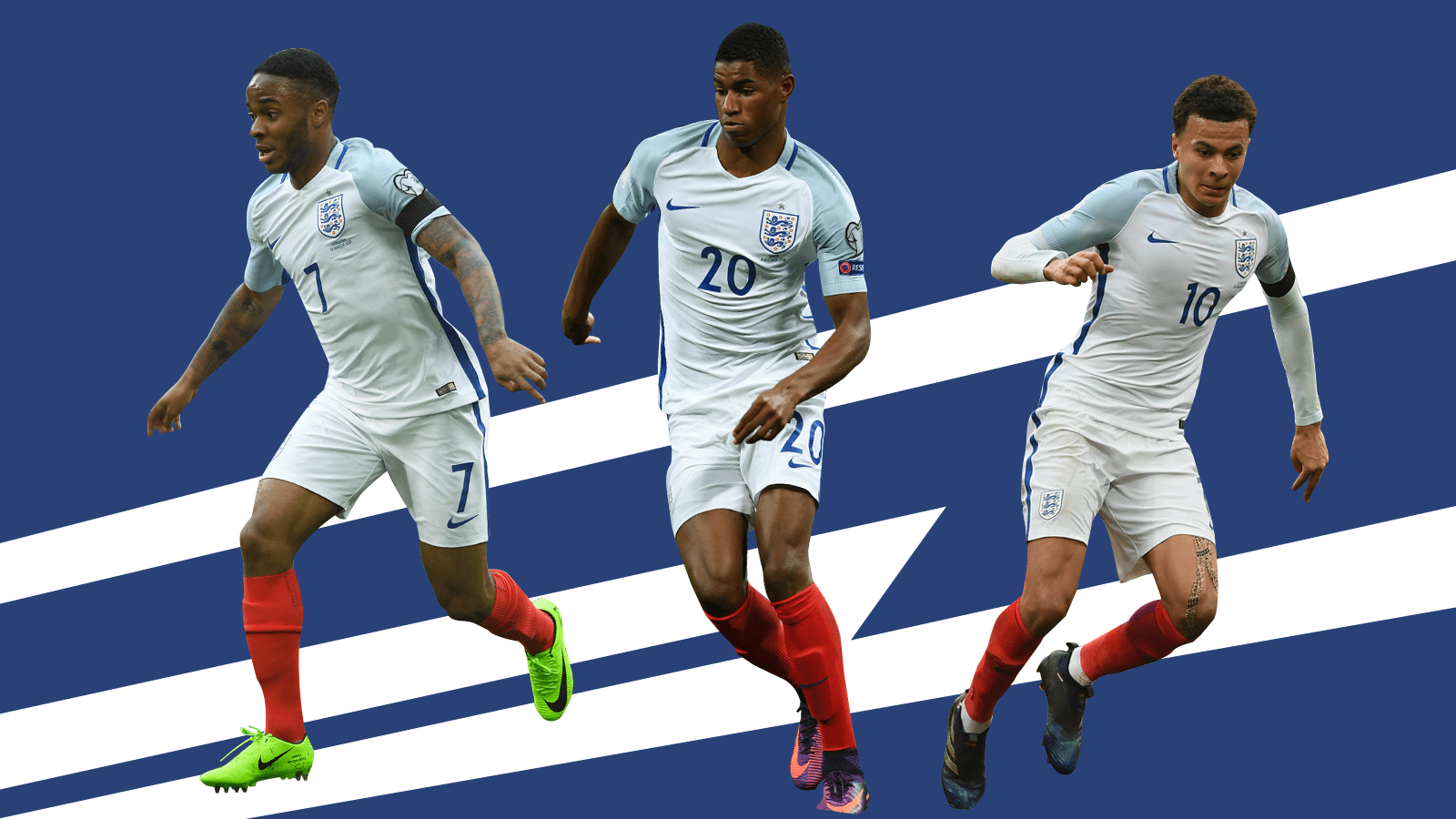
- Published2 June 2018
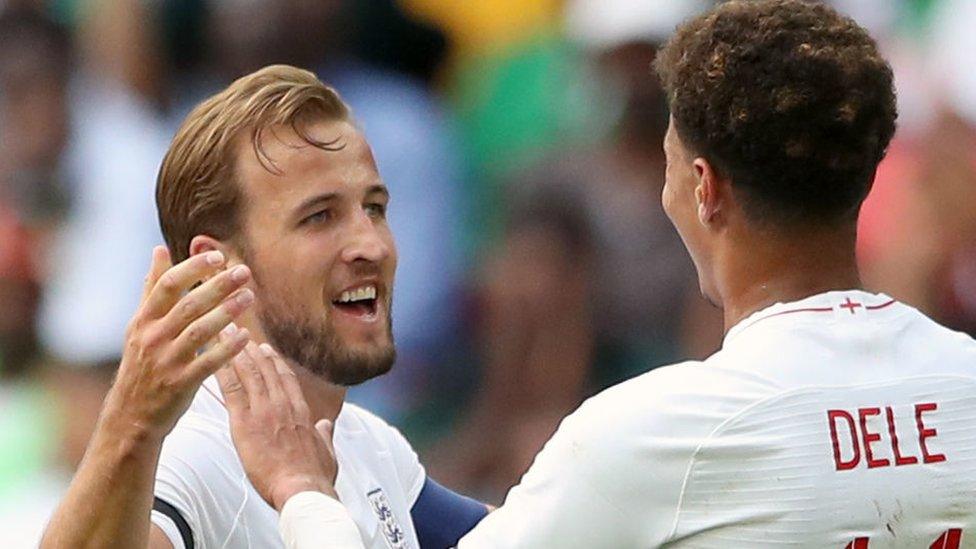
- Published2 June 2018
